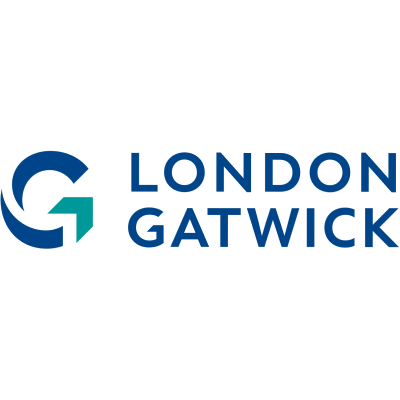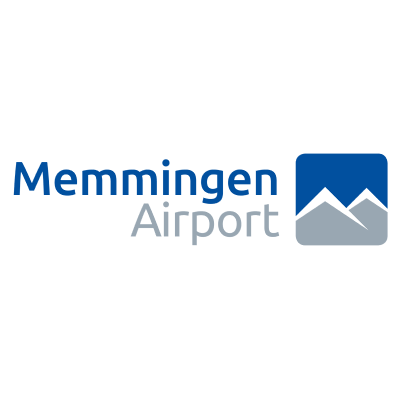The Customer Relationship Management (CRM) software market is projected to reach an estimated $163.6 billion in 2024, making it one of the largest software markets globally.
CRM technology is rapidly adapting to provide more refined services that cater to the changing needs of customers. Airports that are up to date on the latest CRM software trends and incorporate them into their operations have the upper hand in improving their technological capabilities and staying competitive.
So what trends are driving CRM tech in 2024? From the increased use of artificial intelligence (AI) to the importance of the customer experience, let’s take a look at how CRMs are adapting to customer needs.
1. The growing significance of Artificial Intelligence (AI)
Everyone is talking about AI, so it’ll be no surprise that CRM technology is evolving to leverage its capabilities. AI offers many benefits, such as automating tasks, increasing operational efficiency and personalising communications.
It’s integral to CRM solutions because it can continually improve and refine itself through Machine Learning, without human interaction, to keep your airport on top of its customer relationship management.
Automating tasks
While automation is a staple in CRM systems, the level of AI-powered automation seen today extends far beyond basic functions. Imagine a CRM that automatically updates passenger profiles with their latest flight bookings, preferences for seating, or meal choices. Or consider automated alerts that notify passengers of gate changes or flight delays through their preferred communication channel, whether that’s SMS, email, or a mobile app.
This shift enables airport customer support teams to dedicate more time to direct interactions with passengers, addressing complex queries or providing personalised assistance that enhances the overall travel experience.
Increasing operational efficiency
AI can identify patterns from data in your CRM, using it to predict outcomes and suggest what action to take. AI-powered forecasting can help your airport make data-driven decisions and mitigate potential challenges.
Imagine your CRM uses AI to analyse historical data on passenger preferences for shopping and dining at the airport. The AI can forecast periods of high demand in airport retail and dining areas, and your retailers can ensure they have adequate, staff and products to serve all their customers comfortably. This approach not only improves the passenger experience by minimising wait times and overcrowding but also supports retailers in maximising sales opportunities and maintaining high customer service standards.
Personalisation
AI can automate personalised, relevant messages based on your CRM’s rich customer data and preferences. When a customer books with your airport, a CRM with AI functionality will look at their previous purchases and preferences and use them to recommend and cross-sell similar products or services to increase revenue for your airport and offer a best-in-class customer experience.
Picture a passenger who frequently flies through your airport and has a history of booking premium parking and using the VIP lounge. Before their arrival, the CRM — after analysing past preferences and notes their affinity for premium services — sends them an automated email offering a special bundle that includes premium parking, VIP lounge access, and an exclusive discount at a high-end airport restaurant they haven’t tried yet but matches their profile of preferences.
This personalised approach improves the customer journey while driving additional sales for you.
2. Analytics-driven CRMs
Today businesses, including airports, continue to generate huge volumes of customer and marketing-related data and are increasingly looking for powerful analytics tools to process and report on data in real-time. As a result, CRM solutions are incorporating advanced analytics to give businesses a complete picture of their customers and a single, comprehensive view of all sales and marketing activities.
Rezcomm’s powerful CRM module bridges the gap between your airport and its customers. Plug in our cutting-edge Business modules to benefit from a full suite of Analytics, Business Intelligence and Reporting and Forecasting solutions.
3. Integration with IoT devices
Did you know the IoT market is anticipated to hit nearly $3,353 billion by 2030, growing at an annual rate of 26.1%? IoT technology enables you to gather extensive data from a variety of internet-connected devices that passengers use throughout their journey, from smart luggage tags to wearable devices.
When this data is integrated with CRM solutions, it provides airports with a comprehensive view of customer interactions and preferences. You can use it to craft highly targeted marketing campaigns and offer personalised services that cater directly to individual passenger needs. For example, based on IoT data, an airport can send personalised retail or dining offers to passengers’ smartphones for the specific terminal they’re waiting in, enhancing their experience and potentially increasing spend per passenger.
4. Business vertical specific CRM systems
The next stage in the evolution of CRM technology is verticalisation, driven by the specific needs of companies in certain sectors or industries.
A significant benefit of vertical-specific CRM systems is that you can configure them more easily than generic CRMs. They are also developed with a suite of niche features to align with various processes unique to an industry and address specific pain points.
At Rezcomm, we’re already steps ahead, with an industry-specific CRM solution for airports. Some of our features for airports include:
- Real-time flight information, enabling you to send timely and personalised communication to passengers regarding their flights.
- The creation and management of airport loyalty programs, encouraging repeat business and rewarding frequent flyers.
- Sophisticated pricing and yield management tools specifically designed for airport parking and ancillary services.
- Advanced segmentation tools based on travel behaviour, preferences, and historical data to create highly targeted marketing campaigns.
5. Condensed and connected tech stack
CRMs provide a host of benefits for businesses and are integral to its well-being. However, to realise the full potential of your CRM it must offer the flexibility to integrate with other tools and processes within your organisation.
From your ecommerce platform and email marketing system to your business intelligence and yield management tools, they should all be connected and easy to manage with single, centralised administration.
Keeping your data in sync will help your airport avoid human error, eliminate data silos, save time, and enable you to gain a holistic view of your entire business and its customers. Refining your tech stack also has the potential to maximise ROI and achieve significant cost savings.
As we like to say at Rezcomm, ‘why use multiple suppliers when you can use just one?’ Modern CRM solutions are evolving and incorporating other key business technologies, such as sales, marketing, and business intelligence solutions, so you can shrink your tech stack and do more with less.
If you’ve previously been paying for separate tools, it’s well worth looking into a best-in-class CRM like Rezcomm Marketplace that will unify your operations with a complete suite of advanced solutions for seamless customer experiences and intelligent performance.
6. Commitment to data security and privacy compliance
Airports cater to passengers from around the world, and businesses must handle and process their personal data according to data privacy laws that not only vary by country and region but are constantly evolving. Non-compliance with these regulations can result in hefty fines, legal challenges, and loss of customer trust.
CRMs are integrating data privacy and security measures to help clients mitigate the risks of data breaches and fines, as well as to build and maintain positive relationships with customers. Embracing these regulations not only shows dedication to ethical standards and customer privacy, but also sets you apart from the crowd in a fierce market.
7. Improved customer experience
One of the main goals of a CRM is to manage customer relationships and improve the customer experience — but what about the experience of the CRM user themselves?
A 2023 Salesforce survey found that 80% of customers consider the experience a company provides as important as its products and services. CRM technology companies are paying attention to what people want. They’re increasingly focusing on providing their clients with a better customer experience so that they can focus on delivering exceptional service to their own customers without being bogged down by complex systems or technical issues.
This means building a CRM that’s easy to use and has a good user interface and design paired with excellent customer service to the client.
Enhance CRM performance with Rezcomm
CRM software is no longer a ‘nice to have’ but a necessity for all airport managers wanting to capture real-time data, extract powerful insights and enhance the value provided to customers.
Now that you’re clued up on the latest CRM trends for 2024 and beyond, it’s time to re-evaluate your current technology. While your CRM may be ticking some of the boxes, if you want to soar to forefront of the airport industry, it’s time to switch to Rezcomm Marketplace and boost your CRM performance with our advanced suite of Business modules.
Our flexible and scalable plug-and-play business modules have no setup fee and can be live in just a matter of days with our accelerated launch program. What’s more, our first-class tech creators are on hand every step of the way to ensure you get the most out of Rezcomm Marketplace.
Download our brochure, watch our video, or get in touch to learn how our CRM can help your airport stay ahead of the competition.





























